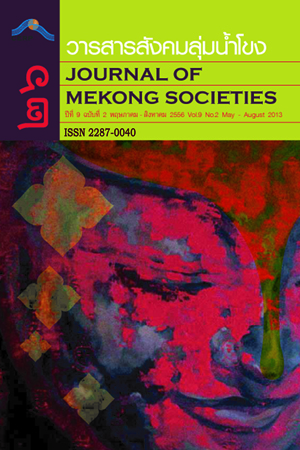Lao PDR.: The Obstacles of State Regulation through Inter-state MOUs on Employment
Main Article Content
Abstract
This article focuses on obstacles of state regulation through MOUs on employment between Lao PDR and Thailand and is based on fieldwork in Lao PDR. The article aims to understand problems which occur in the source country of labor, Lao PDR. Regulation theory, which is based on Marxist political economy theory, is used as the analysis framework. The article shows the significance of MOUs and is influenced by two well-known discourses: free movement of labor and labor protection. The MOUs are also important in setting up and organizing state regulations on labor. Moreover, they push markets into employment mechanisms. However, Lao PDR cannot carry out the new role because of domestic political and administrative conditions. The state cannot facilitate employment; instead it is an obstacle to employment and it increases employment costs. Furthermore, it is unable to increase the effectiveness of markets but instead increases monopolistic tendencies and inefficient markets. The article emphasizes that the main cause of the obstacles to state regulation through MOUs is the lack of administrative good governance. This case reflects the challenges facing Lao PDR, which has participated enthusiastically in the global economy. Development that focuses on growth while lacking good governance is an obstacle to creating economic efficiency and distributing wealth in society fairly.


